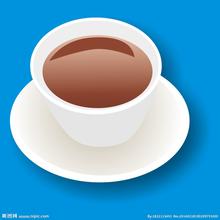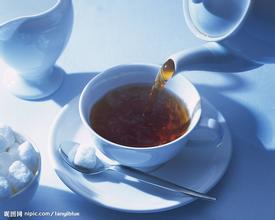Aromatic, pure Salvadoran coffee beans Flavor Description Grind Scale Variety Taste Introduction
Aromatic, pure Salvadoran coffee beans Flavor Description Grind Scale Variety Taste Introduction
Salvadoran coffee is a Central American specialty, light, aromatic, pure and slightly acidic. Like Guatemala and Costa Rica, coffee in El Salvador is graded according to altitude, with the higher the altitude, the better the coffee. The best brand is Pipil, the Aztec Mayan name for coffee, which has been approved by the Organic Certified Institute of America. Another rare coffee is Pacamara, a hybrid of Pacas and Maragogype. The coffee is best grown in western El Salvador, adjacent to Santa Ana, near the border with Guatemala. Pakmara coffee grains are full, when the aroma is not too strong
In the early 1990s, guerrilla warfare greatly disrupted the country's national economy, reducing coffee production from 3.5 million bags in the early 1970s to 2.5 million bags in 1990 - 1991. The eastern part of the country was most affected by guerrilla warfare, and many farmers and workers were forced to leave their estates. The shortage of funds has caused coffee production to plummet, from 1200 kilograms per hectare in the past to less than 900 kilograms per hectare today.
In addition, in 1986 the Government imposed an additional 15 per cent duty on coffee exports, i.e. 15 per cent on top of the existing 30 per cent tax. Taxes, combined with unfavourable exchange rates, severely reduced coffee exports and, with them, quality.
The government finally realized the huge role of coffee in the national economy, such as employment, foreign exchange and agricultural production, so in 1990, it privatized part of the coffee export industry, hoping to increase the yield of coffee in the export market.
Today, this coffee accounts for 40% of the country's exports. The best quality coffee is exported from January to March, and 35% of the extra hard beans are exported to Germany
El Salvador is one of the small countries in Central America and has a very dense population. Its coffee flavor is characterized by excellent balance.
Today, this coffee accounts for 40% of the country's exports. The best quality coffee in January to March after 35% of the extra-hard beans exported to Germany.
In the early 1990s, guerrilla warfare greatly damaged the country's national economy, reducing coffee production from 3.5 million bags in the early 1970s to 2.5 million bags in 1990 - 1991. The eastern part of the country was most affected by guerrilla warfare, and many farmers and workers were forced to leave their estates. The shortage of funds has caused coffee production to plummet, from 1200 kilograms per hectare in the past to less than 900 kilograms per hectare today. In addition, in 1986 the Government imposed an additional 15 per cent duty on coffee exports, i.e. 15 per cent on top of the existing 30 per cent tax. Taxes, combined with unfavourable exchange rates, severely reduced coffee exports and, with them, quality.
The government finally realized the huge role of coffee in the national economy, such as solving employment, earning foreign exchange and developing agriculture, so it privatized part of the coffee export industry in 1990, hoping to increase the yield of coffee in the export market.

Important Notice :
前街咖啡 FrontStreet Coffee has moved to new addredd:
FrontStreet Coffee Address: 315,Donghua East Road,GuangZhou
Tel:020 38364473
- Prev

Description of Coffee Bean Flavor with Costa Rican Yellow Honey treatment introduction to Grinding scale Variety Manor
Description of coffee bean flavor by Costa Rican yellow honey treatment grinding scale variety manor introduction San Juan Manor (Finca San Juanllo) Coffee varieties are Villa sarchi, Caturra,Catuai, Bourbon, with an average elevation of 1600 meters. This microbatch is commissioned by a well-known Herba processing plant to produce raw beans according to its excellent technology.
- Next

Boutique coffee beans Arabica coffee beans hand-brewing method-introduction of manor production areas
Boutique coffee beans Arabica coffee beans hand brewing method-Manor production area introduction if you choose American style, that is, brewing style, of course, it is good to choose 100% Arabica coffee beans, you can choose like Colombia. Brazil。 High-quality Arabica coffee beans from Mexico and other countries. If you choose to drink the traditional Italian coffee Espresso, you also choose 100% Arabica
Related
- Detailed explanation of Jadeite planting Land in Panamanian Jadeite Manor introduction to the grading system of Jadeite competitive bidding, Red bid, Green bid and Rose Summer
- Story of Coffee planting in Brenka region of Costa Rica Stonehenge Manor anaerobic heavy honey treatment of flavor mouth
- What's on the barrel of Blue Mountain Coffee beans?
- Can American coffee also pull flowers? How to use hot American style to pull out a good-looking pattern?
- Can you make a cold extract with coffee beans? What is the right proportion for cold-extracted coffee formula?
- Indonesian PWN Gold Mandrine Coffee Origin Features Flavor How to Chong? Mandolin coffee is American.
- A brief introduction to the flavor characteristics of Brazilian yellow bourbon coffee beans
- What is the effect of different water quality on the flavor of cold-extracted coffee? What kind of water is best for brewing coffee?
- Why do you think of Rose Summer whenever you mention Panamanian coffee?
- Introduction to the characteristics of authentic blue mountain coffee bean producing areas? What is the CIB Coffee Authority in Jamaica?

